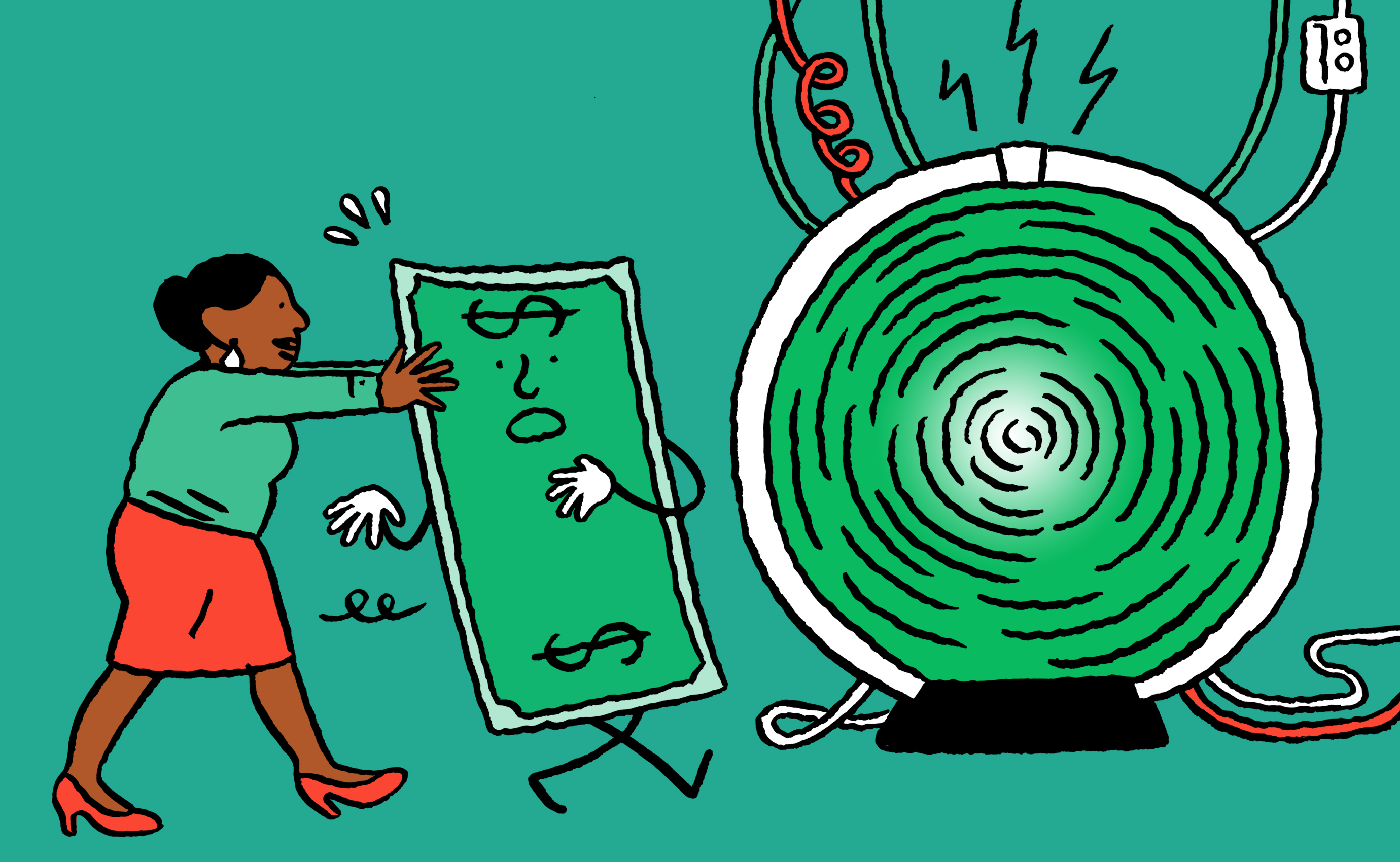Governments test their cryptocurrency
Bitcoin-like money may appear in countries where cash is in decline, or financial networks require renewal.

Swedes break up with cash. The number of banknotes and coins in circulation has fallen to record lows in three decades. The central bank of Sweden, Riksbank, assumes that cash payment is no more than 15% of all retail transactions over the past year, compared with 40% in 2010, largely due to the growing popularity of mobile payment services.
In such a situation, Swedish bankers wonder: is it necessary to introduce in the country a purely digital form of money supported by the government? And if so, is it necessary to use technology similar to the underlying bitcoin?
')
Riksbank is not the only central bank looking seriously at blockchain - the technology on which Bitcoin and other cryptocurrencies operate. These systems, also known as distributed transaction databases, are based on computer networks instead of a central authority, such as a bank, in confirming and recording transactions on a distributed, practically unbreakable database. The leaders of government banks around the world believe that they have the potential to replace cash and to increase the efficiency of other payment systems.
Cryptocurrencies with the support of central banks will look ironic, given that Bitcoin was created as a way to completely get rid of banks. In addition, the idea raises complex questions about the development, creation and support of such systems, as well as how they may affect the financial stability of a country or an entire planet. That is why Riksbank hedges rates, exploring not only distributed databases - which he describes as “unconfirmed, but incredibly rapidly progressing” technologies - but also traditional, centralized accounting methods for his “ e-krona ” project.
Some economists in recent years have argued that a cryptocurrency pegged with money supported by a central bank can give governments the ability to issue digital tokens that closely resemble cash. Users of similar FedCoin federal coins will be able to enjoy anonymity comparable to Bitcoin, and will be protected from the volatility that haunts cryptocurrency. The central banks of different countries are exploring this idea, but Sweden, apparently, has advanced the furthest.
But the cryptocurrency available to everyone "creates a whole range of problems," and will lead to new challenges for legislators, says Rod Garrat , professor of economics at the University of California, Santa Barbara.
Firstly, there is the problem of who exactly should confirm transactions and maintain a distributed database. Even if this issue is resolved, the new system will in some sense be too easily accessible, and in a moment of crisis or panic, a situation in which depositors rush to withdraw their funds can easily happen. In most modern financial systems, large-scale withdrawals of funds are naturally slowed by the central bank’s ability to issue paper money required by people. But if the currency is purely digital, such brakes will not exist - panicked citizens will be able to empty their accounts almost instantly, leaving the entire banking system of the country penniless.
A new article published by the Bank for International Settlements (this is something like a central bank for central banks) offers a more direct approach than trying to replace cash with a cryptocurrency. The article Garrat and Morten Bech, a researcher at the BIS, makes an important distinction between “retail” cryptocurrency like FedCoin and “wholesale” cryptocurrency, which can only be used in banks.
One of the important roles of central banks in the global financial system is the provision of large payments between commercial banks. Commercial banks make deposits in central banks, and when they need to send a large payment to another bank, for example, during the sale of a company or home, they can rely on a payment system managed by central banks. The central bank handles "clearing", updating accounts of all parties involved in order to reflect the new transaction, and "calculations", that is, the actual transfer of money.
Many wholesale payment systems of central banks face a problem: they work on outdated programming languages and outdated databases, and governments are looking for ways to modernize them. Central banks of Canada and Singapore recently demonstrated a prototype of wholesale payment systems based on a distributed database, processing clearing and calculations simultaneously, using a cryptocurrency token. The Chinese conduct similar tests .
Since such systems will be limited to banks only, they will not affect monetary policy like consumer policies, Garratth says: "You simply replace the current banking infrastructure of the financial market." But despite working prototypes, the technology is still imperfect, and the current stage of modernization attempts is unlikely to result in the use of distributed databases.
Even if these applications were ready for use, they would not have solved the problems that Sweden faced. One obvious disadvantage of reducing cash use is that increasing trust in mobile payment systems leads to isolating people who do not use them or who do not have access to them. Also, these systems serve private companies, which means that instead of state institutions, the effectiveness of financial systems in serving people and the economy will be determined by capitalists.
As a result, the decision of Sweden and other governments to switch to cryptocurrencies will depend on whether people want it, Garrett says: “Will the public demand a digital exchange environment with similar cash properties? Where such demands arise, there will be pressure on the government to ensure such an environment. Where there are none, pressure will not appear. ” In any case, all this will take time.
In Russia, too, there are advances on this issue - both the Central Bank and related specialists, in particular, members of the working group on risk assessment of the circulation of cryptocurrency of the State Duma of the Russian Federation, argue about the benefits of the blockchain - approx. trans.
Source: https://habr.com/ru/post/373893/
All Articles